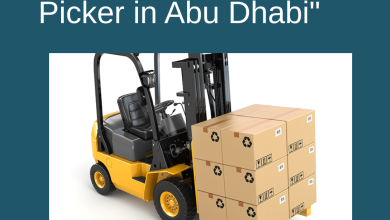What size screws are used for metal roofs

Roofing Screws
Roofing screws or fasteners are used to connect two or more joints, either temporarily or permanently. These are available in hardened steel or chrome steel and are often used for metal, plastic, and fibreglass roofing applications. Further, to prevent water from penetrating and resulting in the deterioration of the fastener material, one can use a washer to seal the drill. For areas exposed to the external environment, like facades and roofs, stainless steel screws are preferable as they are self-repairing and corrosion-resistant.
Importance of the Size of Roofing Screw
Choosing the right size of roofing or facade screws is vital with respect to the types of insulation and increased breadth. However, size refers to a lot of things like the length of the screw body, the diameter of the screw or the size of its head.
The diameter of the screw is also called a gauge. Some commonly used gauges range between two and sixteen. In general, an eight-gauge screw is a perfect size. However, it also depends on the type of material – if it’s heavy, then a gauge size of around 12-14 is suitable. For other lightweight materials like wood, a six-gauge screw proves to be sufficient.
Please take the following points into consideration when choosing the size of your screw:
- The diameter of the screw depends on the width of the material that is screwed into, and the weight of the material accordingly supports the structure. Heavier and sturdier screws work with stouter materials with more weight.
- If a screw is less than half the length of the substrate, it will not anchor properly. Or if it’s longer than half the length of the substrate, it is likely to damage its opposite side.
- Screw Size Used For Metal Roofs
Choosing the correct size of the screw ensures the security and safety of the roof as it stays intact. Let’s see which sizes the metal roof screws come in.
- 1-Inch Screw
The metal roof panelling should extend two to three inches beyond the roof’s eaves and end up two to three inches below the home’s vented ridge. The drip edge is the spacing’s target. This suggests utilising 1-inch screws to create the necessary spacing in some dwellings. Only 3/4 inch of the 1-inch screws will penetrate the surface.
These screws have a 3/4-inch penetration and provide precise spacing for metal roofing panels. The 1-inch screws turn out to be the best option because the panelling should preferably terminate two to three inches below the vented ridge of the home.
-
- 1.5-Inch Screw
These screws, typical for metal roofing, find their use throughout the construction project. They are the best bet as they can pierce up to 1 ¼ inch and rigidly retain the roof in place.
- 1.5-Inch Screw
- 5/16-Inch Screw
Until the point where the panels overlap on the roof, metal roofing “r-type” panelling utilises a 5/16-inch screw every four feet. It stops at the overlay so that the larger screws can support the parts on top. These screws are specifically intended to prevent larger screws from overlapping.
- ¼-Inch Screw
The trim on a metal roof is typically attached in increments of two feet. A metal roof’s trim is fastened with 1/4-inch screws every two feet. The middle of the frame is notched, and those little screws secure it. Screws for V-crimp metal roofing are inserted at high spots and moved downward in two-foot steps.
- Choosing the Right Metal Roofing Screw According to Application
The right kind of metal screw, if chosen, stretches the lifespan of that particular screw. For example, stainless steel facade screws come in different varieties like self-drilling screws and self-tapping screws. If one does the opposite, it can result in damage to both the fastener and the structure. Therefore, it is important to keep note of a few things:
- Examine the gauge or thickness of the panels through which the fasteners anchor.
- Measure the space between the fastener and the roofing panel.
- Calculate the diameter of the fastener head and the washer.
Conclusion
Choosing the best-fit metal roofing screw becomes an easy job if one takes care of the aforementioned points. For a more detailed enquiry and a hassle-free installation process, get in touch with EJOT Octaqon. EJOT has a worldwide presence and offers products and services relevant to construction and industrial engineering. It uses top-notch technology and delivers quality products that last decades.





